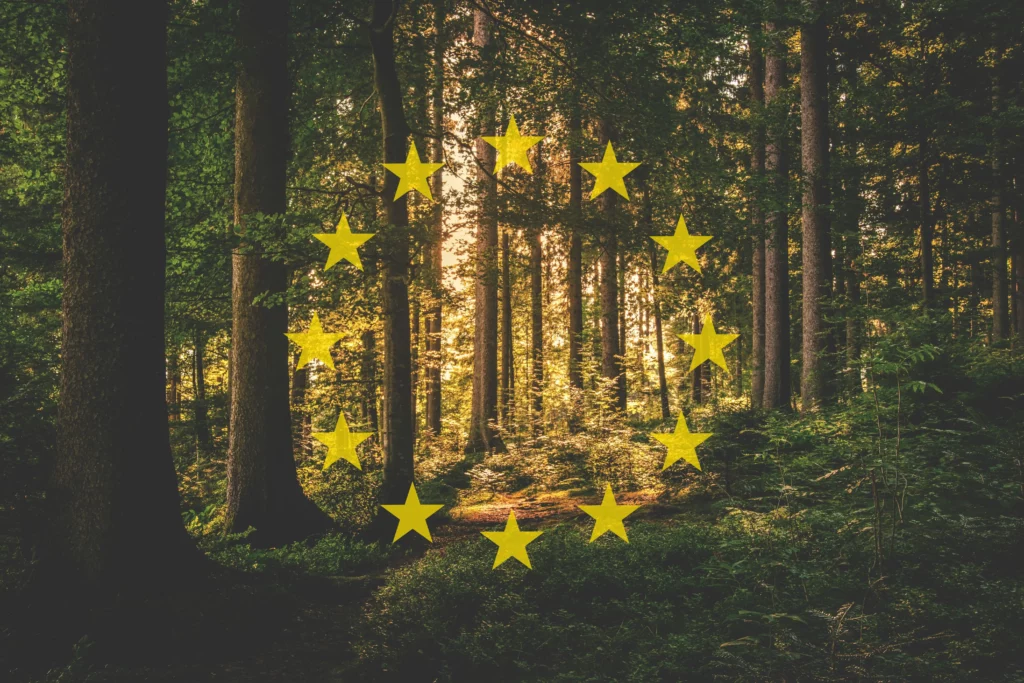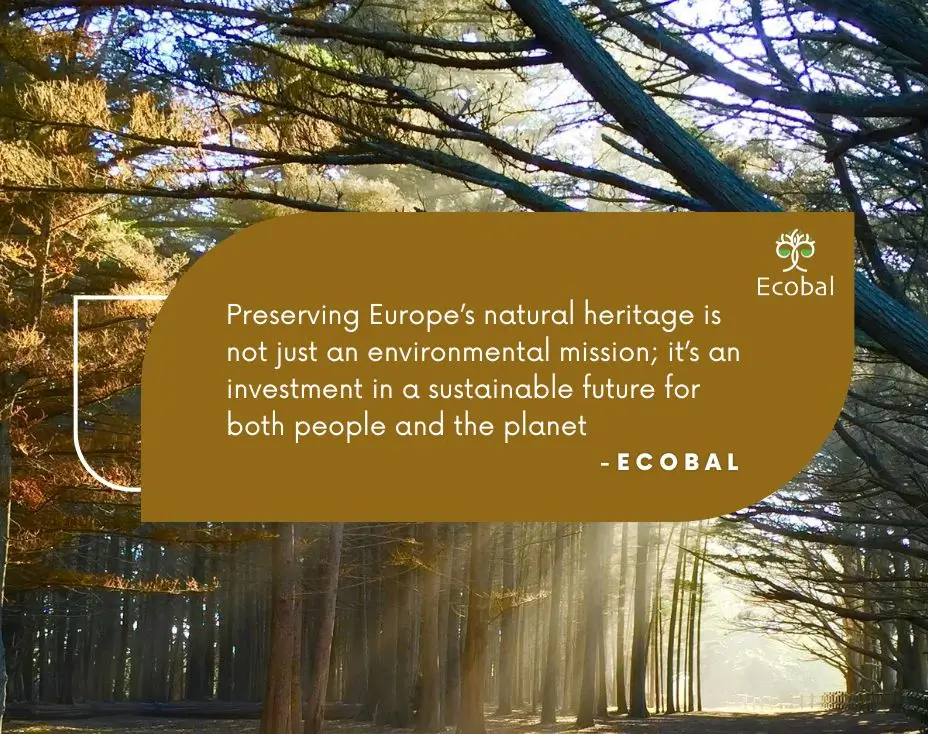Protecting Europe’s Natural Heritage: Ecobal’s Commitment to Sustainable Land Management
Europe’s natural heritage is a rich reservoir of biodiversity, landscapes and ecosystems essential for sustaining life and economic activities. From the alpine meadows of the Swiss Alps to the ancient forests of Central Europe and the wetlands of the Danube delta, these habitats form the basis of Europe’s ecological and cultural identity. However, increasing pressures from urbanization, intensive agriculture, climate change and industrialization pose significant threats to this natural wealth. Globally, approximately 75% of terrestrial environments and 40% of marine environments have been severely altered. The planet is experiencing an unprecedented loss of biodiversity, with more species now threatened with extinction than at any time in human history. In response to these challenges, Ecobal has initiated efforts to protect and restore Europe’s natural heritage through scientifically informed and ecologically sound practices.

The State of Europe’s Natural Heritage
Europe is home to a remarkable diversity of ecosystems, with approximately 27% of its terrestrial area designated as part of the Natura 2000 network, the largest coordinated network of protected areas in the world. Despite these significant conservation efforts, the European Environment Agency (EEA) reports a continuing erosion of biodiversity leading to ecosystem degradation. Recent assessments show that 60% of species and 77% of habitats are still in unfavourable conservation status. Contributing factors include continued habitat loss, diffuse pollution, overexploitation of resources, and the escalating impacts of invasive alien species and climate change. This degradation poses significant risks to biodiversity, water quality and soil health, all of which are essential for human well-being and economic activities such as agriculture and tourism.
Therefore, sustainable land management (SLM) is a vital solution. Sustainable land management integrates environmental protection with economic and social goals. According to the Food and Agriculture Organization (FAO), SLM is essential for maintaining ecosystem services while meeting the rising demands for food and fiber (FAO, 2016). The Economics of Land Degradation Initiative estimates that adopting sustainable land management policies could yield annual gains of USD 75.6 trillion globally, underscoring the economic benefits of these practices (FAO, 2016).
Ecobal’s Strategies for Sustainable Land Management:
Ecobal’s commitment to sustainable land management revolves around the integration of scientific knowledge, innovative technology, and community engagement to address these pressing issues. The key strategies include:
- Restoration of Degraded Lands : Ecobal is dedicated to restoring former agricultural or barren lands into thriving natural habitats with a primary goal of sequestering CO2 from the atmosphere through both soil and vegetation.
- Soil Restoration and Carbon Sequestration: Ecobal has achieved significant milestones, including: Nature Spots in five different EU countries: France, Italy, Poland, Spain and Romania, and manages 155 hectares of Nature Spots across the EU, storing 1581 tons of CO2 and releasing about 1150 tons of oxygen per year.
- Enhancing Biodiversity: Ecobal is actively engaged in restoring degraded lands by planting native tree species, which enhances biodiversity conservation and provides essential habitats for endangered birds and animals. This approach not only supports the recovery of local ecosystems but also fosters resilience against environmental changes, thereby contributing to overall ecological health.
- Education and Awareness Campaigns: Ecobal conducts workshops and training sessions for local communities and land managers to raise awareness about sustainable practices.
- Research and Innovation: Collaborating with academic institutions, Ecobal works in research to develop innovative solutions for sustainable land use.
Why It Matters for Ecobal?
At Ecobal, we are committed to staying at the forefront of technological advancements in CO2 sequestration. By integrating cutting-edge technologies such as ultra-fast CO2 hydrate formation, we enhance our efforts to transform former agricultural or barren lands into thriving ecosystems.
Ecobal’s Mission:
- Raise awareness and establish authority to certify the ecological health and capacity of rural and natural landscapes.
- Monetize ecosystem services to demonstrate the economic value of nature.
- Use natural ecosystems as efficient carbon sinks for CH4 and CO2 sequestration and biodiversity conservation.
- Turning CO2 and CH4 from a challenge into valuable and tradable commodity
- Manage soil microbiota and fauna to improve soil health and ecosystem functionality.
- Restoring biodiversity through the reintroduction and conservation of native species.
About the Author
This article is written by Dr. Amisalu Milkias, Ecobal’s CO₂ Project Specialist. Dr. Milkias combines scientific expertise and innovative practices to advance sustainable land management and biodiversity restoration efforts.


